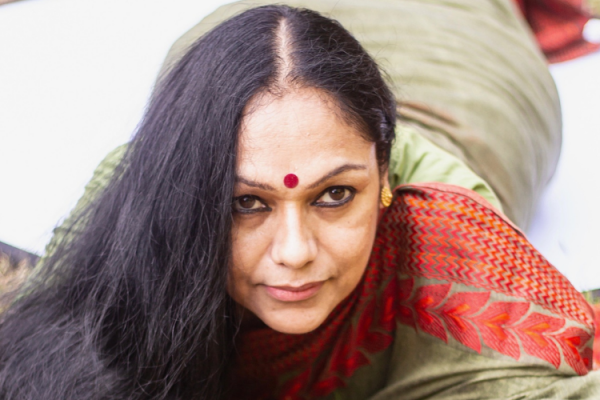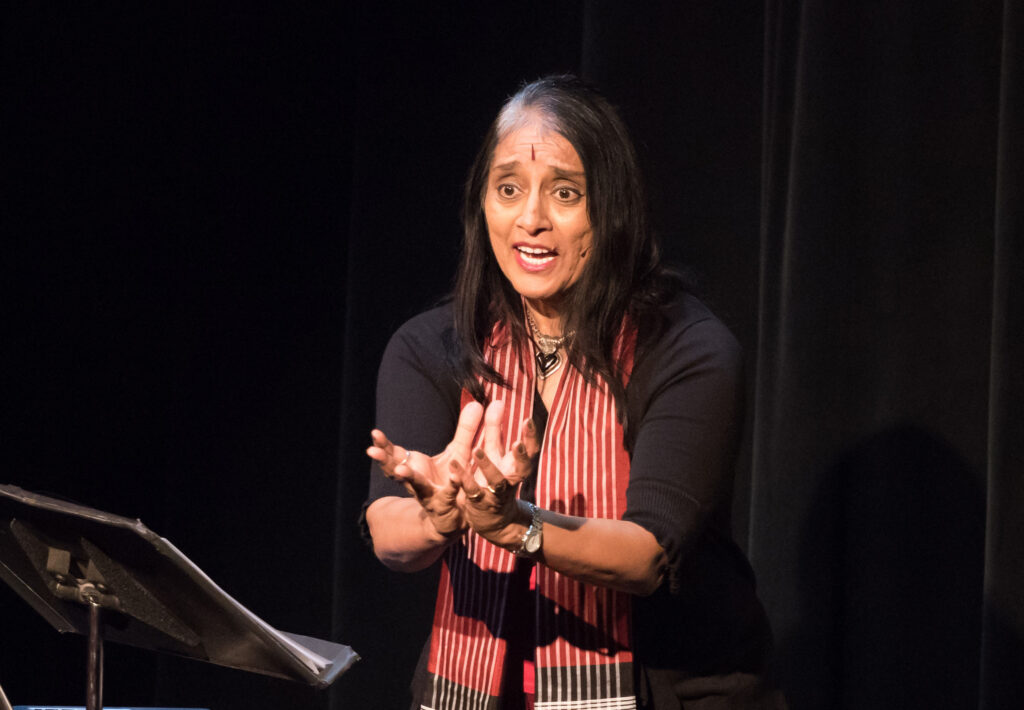Dancing the Gods: Night Two - Rama Vaidyanathan (solo Bharatanatyam)


Our annual Dancing the Gods festival of Indian Dance celebrates its 13th year, featuring some of the leading performers of Indian dance. Each night begins with a slide presentation by Rajika Puri, festival curator and acclaimed dance storyteller.
Sunday, May 12, 2024
Doors: 7 PM | Lec Dem by Curator Rajika Puri: 7:15 PM | Performance: 8 PM
Co-presented with Asia Society
Asia Society – 725 Park Avenue, Manhattan
Tickets: $35 | $45 | $55
Night Two: Rama Vaidyanathan – “Rathnagarbha” (solo Bharatanatyam with live music)
Rama Vaidyanathan is one of the foremost Bharatanatyam dancers of her generation and is also the recipient of the prestigious Sangeet Natak Akademi Puraskar awarded by the central government of India. Her technique is grounded in tradition, yet she brings a fresh approach to her choreography that is evident in the innumerable dance compositions she has added to the Bharatanatyam repertoire. As Director of Ganesa Natyalaya New Delhi, she is actively engaged in teaching and nurturing young dancers, inspiring a whole new generation. Rama opened the very first Dancing the Gods festival in 2011.
Inspired by a seal from the Harappan civilization that has a figurine of a woman with a plant growing out of her womb, this solo work explores various metaphors of Mother Earth giving birth to her progeny, sustaining and nourishing it continuously. Drawing from ancient Indian texts that speak of respecting the cosmic order, the choreography enters areas of inclusivity, gender equality and Earth democracy, thereby reiterating the importance of conserving, celebrating and protecting this planet for an organic evolution of mankind.
Concept, Choreography and Dance by Rama Vaidyanathan
Nattuvangam by Ashwin Subramanian
Vocals by Anugrah Lakshmanan
Mridangam by Sannidhi Vaidyanathan
Violin by Vishwesh Swaminadhan
About Festival Curator and Presenter Rajika Puri


RAJIKA PURI, an exponent of Bharatanatyam and Odissi, conceived of and named Dancing the Gods, Festival of Indian Dance. Well-versed in the dance world of India, and herself an exponent of Bharatanatyam and Odissi, she personally contacts fellow dancers in India – soloists and groups – and is involved in curating the programs they present. Rajika is also known for her particular brand of onstage pre-performance slide lectures – often with demonstration – on a subject connected with the dance forms being presented.
This year’s slide-lecture is on ‘Choreography and Indian Dance’, presented in the auditorium on both May 10th& 12th at 7:15pm.
About Kuchipudi
Kuchipudi is a dance form rooted in the theatrical and dance traditions of Andhra Pradesh, named for the village – also known as Kuchelapuram – where it originated. Traditionally it was performed by troupes of male actor-dancers who presented full-length plays, often lasting all night, to celebrate festivals dedicated to Lord Vishnu. Alongside this tradition developed a solo form, which is today popular around the world.
